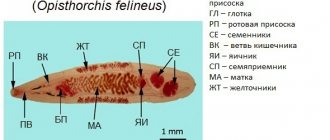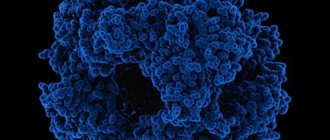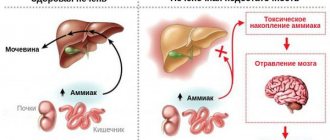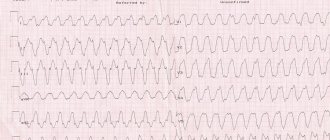Fish contains a huge amount of nutrients necessary for the body, such as trace elements, vitamins and fatty acids, which is why fish dishes are very popular. Despite this, eating fish should be taken seriously, because it quite often becomes the cause of food poisoning.
Ancient people mastered fishing more than 700 thousand years ago, as evidenced by scientific research data. Even at the dawn of humanity, “Homo erectus” learned to catch fish - moreover, he knew how to fry it over a fire. Did our ancestor know what to do in case of fish poisoning? The question remains open.
What do we, contemporaries, know about fish poisoning? Symptoms? Causes? How to act in such a situation? How long does it take for fish poisoning to appear?
Causes of fish poisoning
Scientists have identified four main causes of poisoning:
- infection;
- poisoning by meat of poisonous fish species;
- poisoning by toxic substances that have accumulated in fish meat;
- violation of shelf life or preparation technology.
In the first case, poisoning with stale fish occurs when the terms or conditions of storage are violated. Various harmful bacteria, such as salmonella, begin to actively multiply in it. As a result, the “lucky” person who eats stale fish develops an intestinal infection.
In the second case, fish food poisoning can occur when certain species from tropical latitudes are consumed - as a result of their vital activity, chemical compounds that are poisonous to humans are formed in their bodies.
In the third case, the cause of poisoning is associated with the accumulation of toxic environmental products in the fish carcass, caviar, and milk. Humanity mindlessly pollutes the waters of oceans and rivers, and then feeds on poisonous fish!
There’s nothing to say about the fourth case; it’s not so much about the fish, but about observing the basic rules of storing and preparing food.
The national cuisine of almost every nation includes a huge number of fish dishes. There are many ways to process seafood - salting, smoking, stewing, drying; some people prefer raw fish. Unfortunately, not only raw fish can cause poisoning.
A favorite dish of Russian cuisine is salted fish. Many fishermen make homemade “herring” on their own. Salted fish poisoning often occurs when salting technology is violated, when already spoiled fish is salted, or when the product is prepared in unsanitary conditions.
Dried fish is another popular but unsafe product. But we should not forget that when eating dried fish there is a high risk of infection with parasites living in the reservoir.
Poisoning from dried fish can occur due to unsanitary conditions in the room where the fish is dried, or non-compliance with the preparation recipe. If the fish is caught in rivers or lakes near large cities and industrial centers, then consuming it is risky: toxic substances can accumulate in the meat, which are not destroyed by drying.
Poisoning from fried fish is possible if stale fish, or fish that has been frozen numerous times, was initially placed in the pan. Signs of poisoning from fried fish appear within 30-40 minutes after consumption.
Smoked fish poisoning occurs in cases where the cooking technology is violated, and bacteria and parasites remain in fish carcasses. In 2021, mass smoked fish poisoning in Lviv was caused by salmonella. It has been established that violations of the rules for storing and smoking fish are to blame for this.
Raw fish poisoning is possible when eating oriental dishes - sushi, rolls, etc. Dishes made from raw fish are not subjected to heat treatment; helminths or their larvae easily penetrate the human body, causing intoxication
For a long time in Rus', Orthodox Christians had a ban on fish that did not have scales (catfish, eel, sturgeon). According to the Old Testament, such a fish was unclean, and a person who touched it or consumed a piece was considered defiled. Seafood that did not have scales or feathers was also prohibited. It was impossible to eat raw fish, as the Chinese and Japanese did.
Perhaps, thanks to this ban, our ancestors were able to reduce the number of fish poisonings...
What are the dangers of fish intoxication?
- Poisoning from smoked, dried, salted, fried or raw fish often disrupts the functioning of organs and systems. A product contaminated with toxins can cause infectious-toxic shock.
- Due to bacterial intoxication, consciousness is often impaired, tachycardia develops, and blood pressure decreases. In severe cases, the poisoned person may fall into a coma.
- Dehydration develops due to excessive vomiting and diarrhea. Lack of fluid can cause internal organ failure and death.
- Acute renal failure occurs against the background of toxic shock. In severe cases, respiratory arrest occurs.
- Under the influence of toxic elements, acute gastritis and inflammation of the pancreas (pancreatitis) appear.
Particularly severe poisoning is caused by poisonous fish, such as fugu. Just 1 ml of toxin contained in the body of a pufferfish can kill an adult within 15–30 minutes. Intoxication is characterized by numbness of the mouth and limbs, incessant vomiting, and dysfunction of the diaphragm. This is a very dangerous condition that can lead to death.
When eating spoiled mackerel, tuna, saury and other fish of the mackerel or mackerel family, scombrotoxicosis often develops. The disease is usually caused by bacteria that begin to multiply when stored improperly. Moreover, even subsequent heat treatment does not prevent the appearance of scombrotoxins.
Symptoms of poisoning in this case develop within an hour. A tingling sensation appears in the mouth, itching of the skin begins, a rash appears, and a severe headache. Symptoms include rapid heartbeat, sweating, dizziness, as well as nausea and diarrhea. Such signs make intoxication similar to an allergic reaction.
Botulism poses a very serious danger. Respiratory paralysis, leading to respiratory arrest and death, can occur within two days. The causative agent of the disease, botulinum, develops in the absence of air. Therefore, it is believed that canned fish, pates, and hermetically packaged products should cause the greatest caution. However, you should remember to take precautions even if you eat a freshly prepared fish dish.
The Clostridium botulinum bacillus can penetrate fish tissue through wounds, including when caught with hooked gear. Doctor Suleizhan claims that “botulism poisoning is usually associated with the consumption of large fish” (Suleizhan B.Zh., 2011, p. 66). In the thickness of the tissues of a large individual there is also no access to air.
Fish poisoning: symptoms and treatment
If the poisoning is caused by fish infected with bacteria or helminths, the patient develops signs of an acute intestinal infection, the so-called cholera-like variant. It occurs when fish or seafood containing toxins from microorganisms are poisoned.
An example would be red fish poisoning. It turns out that representatives of the salmon family are often infected with various microbes.
How quickly do the initial symptoms of fish poisoning occur?
As a rule, 30-60 minutes after eating the following appear:
- thirst;
- nausea;
- temperature;
- vomit;
- diarrhea;
- pain in the stomach.
Poisoning from poisonous fish species (for example, puffer fish) can damage not only the digestive organs, but also the nervous, cardiovascular and respiratory systems.
Complications and consequences
The consequences of ichthyotoxicosis are varied. Some lead to chronic diseases, others pose a real threat to life. The most common complications of fish poisoning:
- Acute respiratory failure, respiratory arrest;
- Infectious-toxic shock - damage to internal organs due to a large amount of toxic substances in the blood;
- Kidney failure;
- Toxic hepatitis;
- Hypovolemic shock due to dehydration;
- Development of gastroduodenitis, pancreatitis, cholecystitis.
With adequate and timely treatment, ichthyotoxicosis can resolve without consequences.
Symptoms of fish poisoning
The first signs of fish poisoning in a person appear half an hour after enjoying the “silky” taste: numbness of the mucous membranes of the mouth, tongue, lips, dizziness, increased salivation. Poisoning by puffer fish is distinguished by the fact that its poison, tetradotoxin, has a toxic effect on the nervous system, causing muscle paralysis, respiratory arrest and cardiac arrest. As you can see, such gastronomic delights can result in poisoning from poisonous caviar, meat, and milk.
Did you know...
...that aquarium fish also get poisoned? It turns out that due to the negligence and oversight of the owners, fish poisoning with nitrites occurs (toxic substances in the aquarium are formed when there is a large amount of leftover food or overcrowding of the “living space”), ammonia poisoning (dead fish in the aquarium), and fish poisoning with chlorine.
If you suspect fish poisoning with ammonia, nitrates, hydrogen sulfide, or if fish are poisoned with nitrites, the affected “goldfish” must be urgently transplanted into fresh water. To prevent poisoning in fish, aquarium water is aerated. If fish are poisoned by chlorine, you can help the victims by transplanting them with clean water with the addition of an antidote - sodium thiosulfate.
Nutrition during recovery
Any poisoning is stress for the digestive system. Therefore, in the acute and recovery periods she needs a gentle diet. After vomiting stops, meals are recommended in small portions. Permitted for use:
- Vegetarian soups, puree soups;
- Oatmeal, buckwheat, rice porridge;
- Lean varieties of meat and fish, preferably in chopped form - cutlets, meatballs, meatballs;
- Vegetables only thermally processed - stewed, boiled, steamed;
- Croutons, dried bread;
- Galette cookies;
- Weak tea, still mineral water, jelly.
Difficult to digest foods should be limited:
- Fatty meat and fish;
- Fried foods;
- Marinades;
- Smoked meats;
- Fresh vegetables and fruits;
- Pearl barley, barley porridge;
- Rich broths, seasoning soups;
- Butter pastries;
- Carbonated and alcoholic drinks.
The diet is expanded gradually, no earlier than 3 days after the condition has stabilized. First, low-fat fermented milk products are introduced, then pureed fruits and fruit drinks.
First aid for fish poisoning
Before the ambulance arrives, the victim of a fish “delicacy” should rinse his stomach: this will make it possible to promptly remove the remnants of eaten food from it and reduce the absorption of toxins into the blood. First aid involves timely combating intoxication and reducing symptoms after poisoning. To do this, you should always have Enterosgel !
How to treat diarrhea? It is undesirable to take medications for diarrhea, because it is thanks to diarrhea that the body naturally cleanses itself of toxins. In the mild stage of poisoning, when the symptoms are mild, and treatment at home is carried out after consulting a doctor, therapeutic nutrition, Enterosgel sorbent, digestive enzymes, and plenty of fluids are prescribed.
What can you eat after poisoning? As with any food poisoning, a strict diet is recommended for the first days: white crackers, water, then broth, jelly, slimy soups, pureed porridge, and omelet are gradually introduced into the menu.
Remember: in case of severe poisoning, treatment at home is impossible!
First aid for fish poisoning in a medical institution is also aimed at replenishing fluids and electrolytes, restoring the functioning of the nervous system, heart and lungs, and eliminating intoxication.
Survey
In order for a doctor to diagnose food poisoning, as a rule, it is enough to carefully interview the parents and examine the child. Sometimes the doctor may additionally prescribe:
- a blood test to see if symptoms are caused by a bacterial or viral infection;
- stool analysis to rule out infection caused by abnormal bacteria;
- If an examination by a surgeon is required, he may also prescribe an additional examination.
Online consultation with pediatrician Olga Nikolaevna Tekutyeva
Registration online
During the consultation, you will be able to voice your problem, the doctor will clarify the situation, interpret the tests, answer your questions and give the necessary recommendations.
Enterosgel and food poisoning
Doctors consider Enterosgel sorbent one of the most effective drugs for combating intoxication! Scientists have proven the effectiveness of using this drug in patients with food poisoning.
Enterosgel has a positive effect on the mucous membrane of the stomach and intestines, helps improve the processes of digestion and absorption of food and restores intestinal flora. Enterosgel has no side effects, has no contraindications, can be used in children and pregnant women in the complex treatment of food poisoning and does not change the color of stool, which is important for diagnosis.
Prevention of poisoning
You can avoid fish poisoning by following these simple recommendations:
- Observe the terms and conditions of storage of fish products;
- Pay attention to the appearance of the fish when purchasing;
- Do not allow fish to be defrosted multiple times;
- Thoroughly fry or boil the fish carcass;
- Do not store prepared fish dishes in the refrigerator for more than 3 days;
- Don't eat raw fish;
- Do not eat in establishments with a dubious reputation;
- Don't buy fish from street vendors;
- If you are traveling to Japan, if possible, avoid tasting fugu fish - remember, an antidote for it has not yet been found;
Don’t forget to put Enterosgel sorbent in your home medicine cabinet and be healthy!










